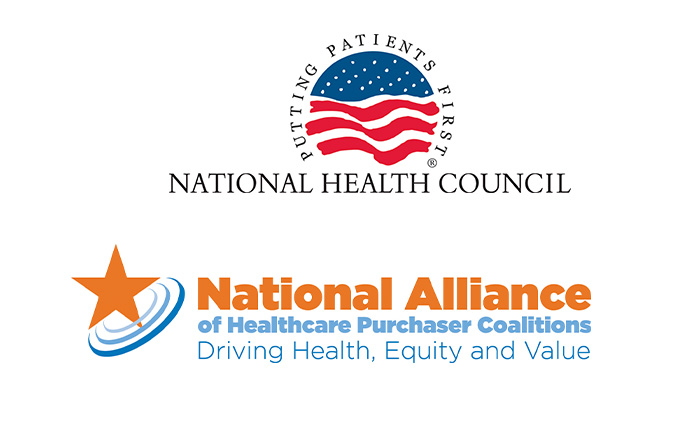

National Health Council and Tufts Medical Center Launch New Collaboration on Patient-Centered Value Assessment
By Elisabeth Oehrlein, PhD, MS, Assistant Vice President, Research and Programs, National Health Council; and
Tara Lavelle, PhD, Assistant Professor of Medicine, Center for the Evaluation of Value and Risk in Health (CEVR) at Tufts Medical Center
Patient-centered value/health technology assessment (V/HTA) exists when patients are engaged, heard, understood, and respected throughout the entire V/HTA process, and their input is incorporated and guides decision-making. A V/HTA can be considered patient-centered when individual patients sit down with a final V/HTA report and believe it reflects the multi-dimensionality of their experiences, the burden of disease, and recognizes the different ways a disease manifest.
The National Health Council (NHC), in partnership with the Center for the Evaluation of Value and Risk in Health (CEVR) at Tufts Medical Center is excited to announce a new partnership to develop good–practice recommendations to assist researchers in developing more patient-centered value/health technology assessments (V/HTA). The project is part of a collaboration between two Value Assessment Centers of Excellence: the Patient-Driven Values in Healthcare Evaluation (PAVE) and Tufts Center for Enhanced Value Assessment (CEVA).
What Is the Project About?
Researchers often cite a lack of data as the ultimate barrier to creating a patient-centered V/HTA. But as we await longer-term improvements to the data landscape, there are a number of opportunities for the V/HTA stakeholder community to improve the patient centricity of new assessments. In this project we will develop feasible recommendations on how to use an existing patient-centered data infrastructure to support more patient-centered V/HTA today. Specifically, by focusing on the PICOTS framework, we provide recommendations on how the following elements of a V/HTA can be defined and measured based on patient experience and using available data resources: Patient population, Intervention and Comparator(s), Outcomes of interest, Time horizon of interventions and accompanying changes in health, and the Setting in which care is delivered.
The recommendations developed in this project will describe patient-centered methods for identifying and collecting V/HTA data inputs, developing an analysis plan, and providing transparent reporting of results. Given that data may not be available on all recommended patient-centered PICOTS elements, one important piece of this work will be to provide recommendations on how researchers can transparently communicate which patient-centered data elements were incorporated into their assessments and where gaps remain.
What Is the PICOTS Framework?
PICOTS is an acronym that helps researchers develop questions that are clearly defined and specific (visit our infographic to learn more). The PICOTS framework can be used to clearly define the key parts of a research question:
- Patient population
- Intervention
- Comparator(s)
- Outcome of interest
- Time
- Setting
In V/HTA, the PICOTS framework can be used to guide the scope of an assessment, including how the analysis should be designed, and which data are included.
Why Is This Needed?
Many researchers do not include patient input, or make use of patient-provided information (e.g., experiences, perspectives, patient-reported outcomes, desired outcomes, goals, etc.) in V/HTA, even when data do exist. As a result, most V/HTA research is methodologically sound according to current guidelines but does not reflect the lived experiences of patients.
Developing recommendations based on the PICOTS framework on how patient-centered elements can be defined and applied in a V/HTA, is a necessary first step in ensuring V/HTA is patient centered.
How Can I Get Involved?
Throughout the next 18-months, we will be conducting interviews, workshops, and an eDelphi survey. Let us know you are interested in contributing by emailing us at: NHCprograms@nhcouncil.org.
This project is supported by the PhRMA Foundation and Amgen. The National Health Council’s Value Initiative is supported by Gilead, Novartis, PhRMA, Merck, and Sangamo.


